7 Common Skin Conditions and How To Fix Them
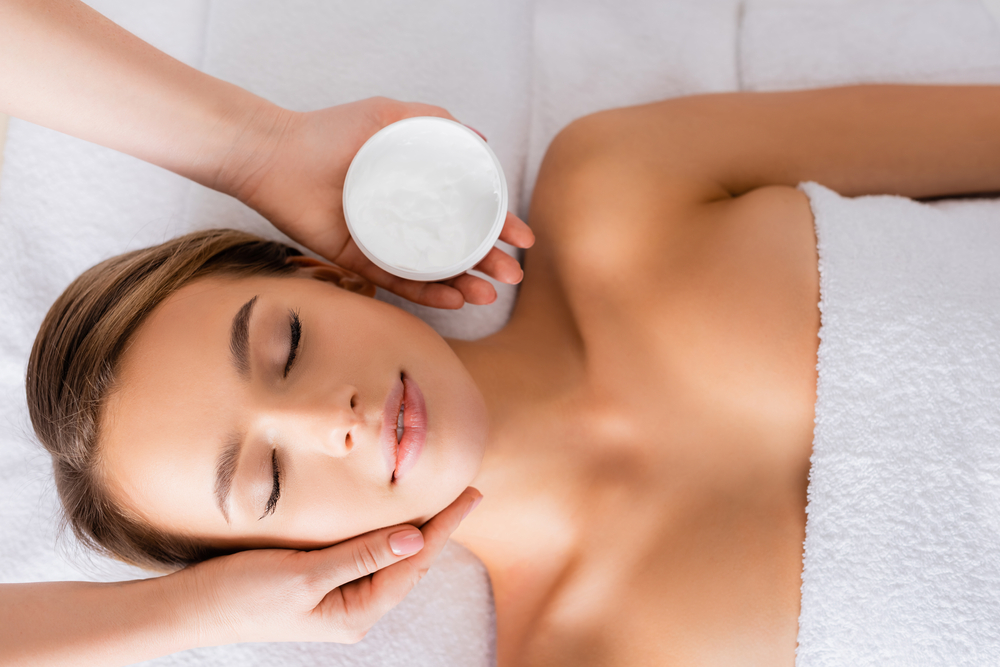
Though it’s easy to forget, the skin is an organ – it’s the largest organ in the body, in fact. And just like the rest of your organs, your skin needs taking good care of. Skin conditions affect around 149 billion people globally [i], and they can be much more than a knock to the confidence. Ailments such as dry skin, acne and cold sores can seriously affect the skin and will continue to occur without treatment. Luckily, many common skin conditions are treatable nowadays. So, to help you take care of the most important organ of your body and get you back in tip-top shape, these are the most common skin conditions and how you can treat them.
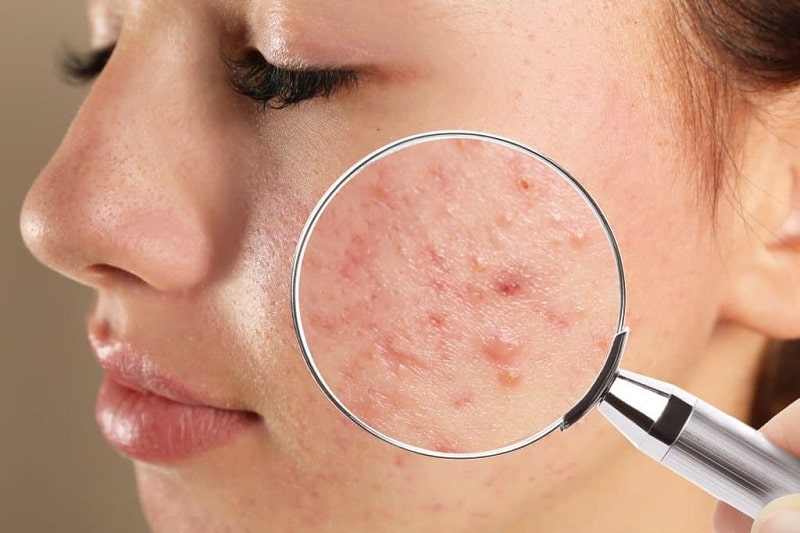
1. Acne
Acne is one of the most common skin conditions and affects almost everyone at some point in their lives, particularly teenagers and young adults. This condition is characterised by spots, oily skin, and, in some cases, skin that is hot or painful to the touch. Although acne symptoms are most common on the face, they can also develop on the back, shoulders and chest. It’s estimated that around 650 million people worldwide suffer from acne[ii].
What Causes Acne?
Acne occurs when hair follicles – tiny holes in the skin that individual hairs grow from – get blocked. Attached to these hair follicles are sebaceous glands, which stop the skin from drying out by producing an oily substance called sebum. However, different factors can cause an overproduction of sebum. This excess mixes with dead skin cells and clogs the follicles. Clogged follicles can then bulge out, causing whiteheads, or become open to the skin, causing blackheads. Sometimes, bacteria that live on the skin can contaminate the clogged follicles, which leads to pustules, nodules, cysts or papules.
Acne Treatment
There are plenty of treatment options available for acne. If your case is relatively mild, it should be easily treated by over the counter medications from your pharmacy. These are usually topical treatments that contain benzoyl peroxide, though it’s best to discuss with your pharmacist before trying new medications. If pharmacy remedies don’t work or your acne is more severe, you should see a GP. They will be able to provide you with stronger prescription medicines or refer you to a dermatologist. Remember that you may not see results for two or three months, so try to persevere with recommended treatments even if you see no immediate effect.
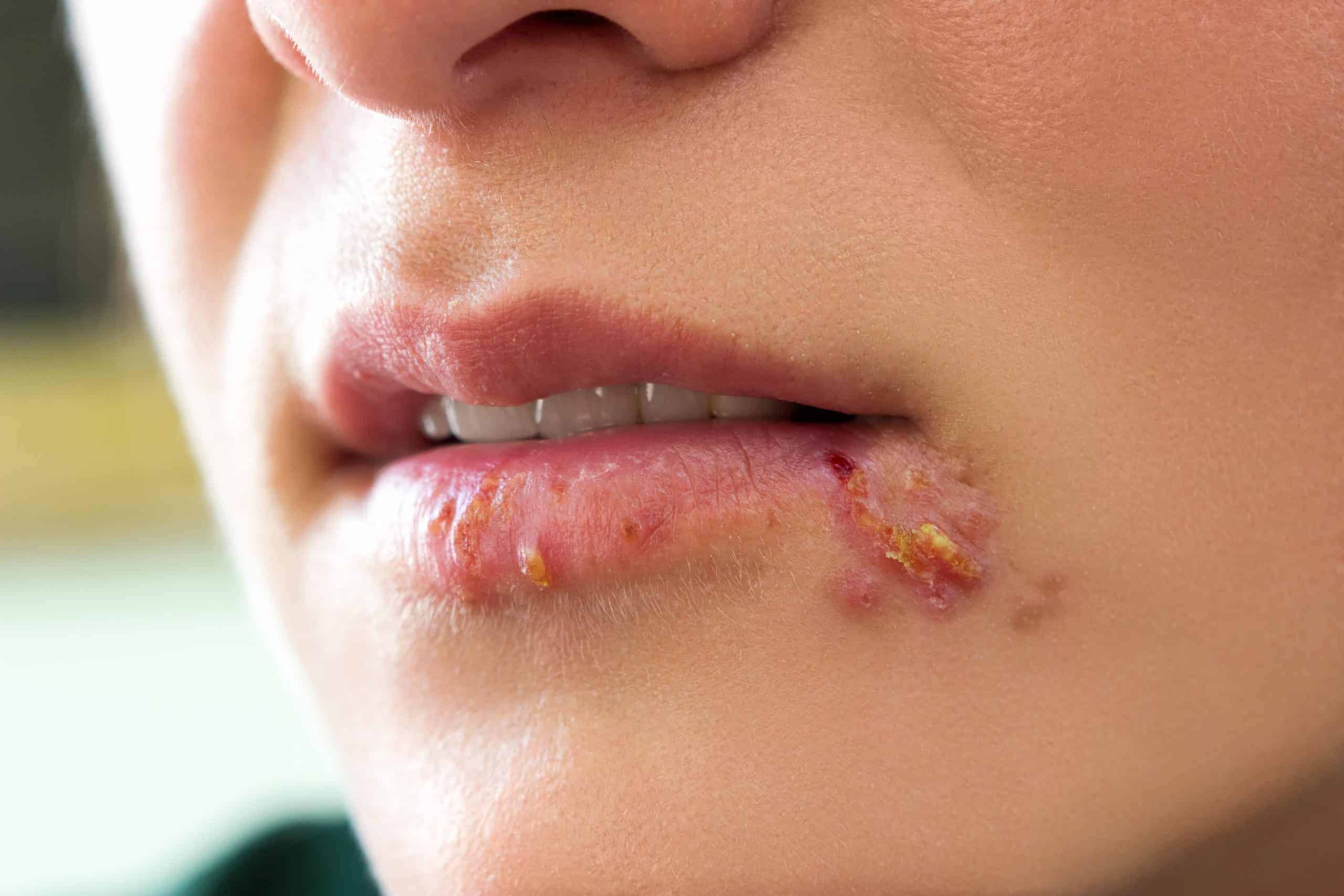
2. Cold Sores
Cold sores are a common viral infection that causes fluid-filled blisters on the face, usually on and around the lips. These blisters tend to be grouped in patches and will start to tingle, itch or burn. Once these sensations begin, the cold sore is very contagious and physical contact should be avoided until it has healed. It’s vital that you especially don’t kiss babies with a cold sore as this can cause neonatal herpes, which can be fatal to newborns.
What Causes Cold Sores?
Cold sores are usually caused by the herpes simplex virus type 1 (HSV-1), though they can also be due to the herpes simplex virus type 2 (HSV-2), and are spread easily through close contact. Around 67% of the world’s population under 50 are infected with HSV-1[iii], though many will not get physical symptoms until they’re older. Once you have any of the herpes simplex viruses, you will have it for life. However, you can only pass it on to someone else if they come in contact with your cold sore.
Cold Sores Treatment
Cold sores should begin to heal on their own within ten days, though pharmacists can provide treatment to help manage symptoms and outbreaks. Unfortunately, there are no treatments that will cure cold sores, however, there are medications that will ease the healing process. These usually come in the form of antiviral tablets, cold sore patches or soothing creams.
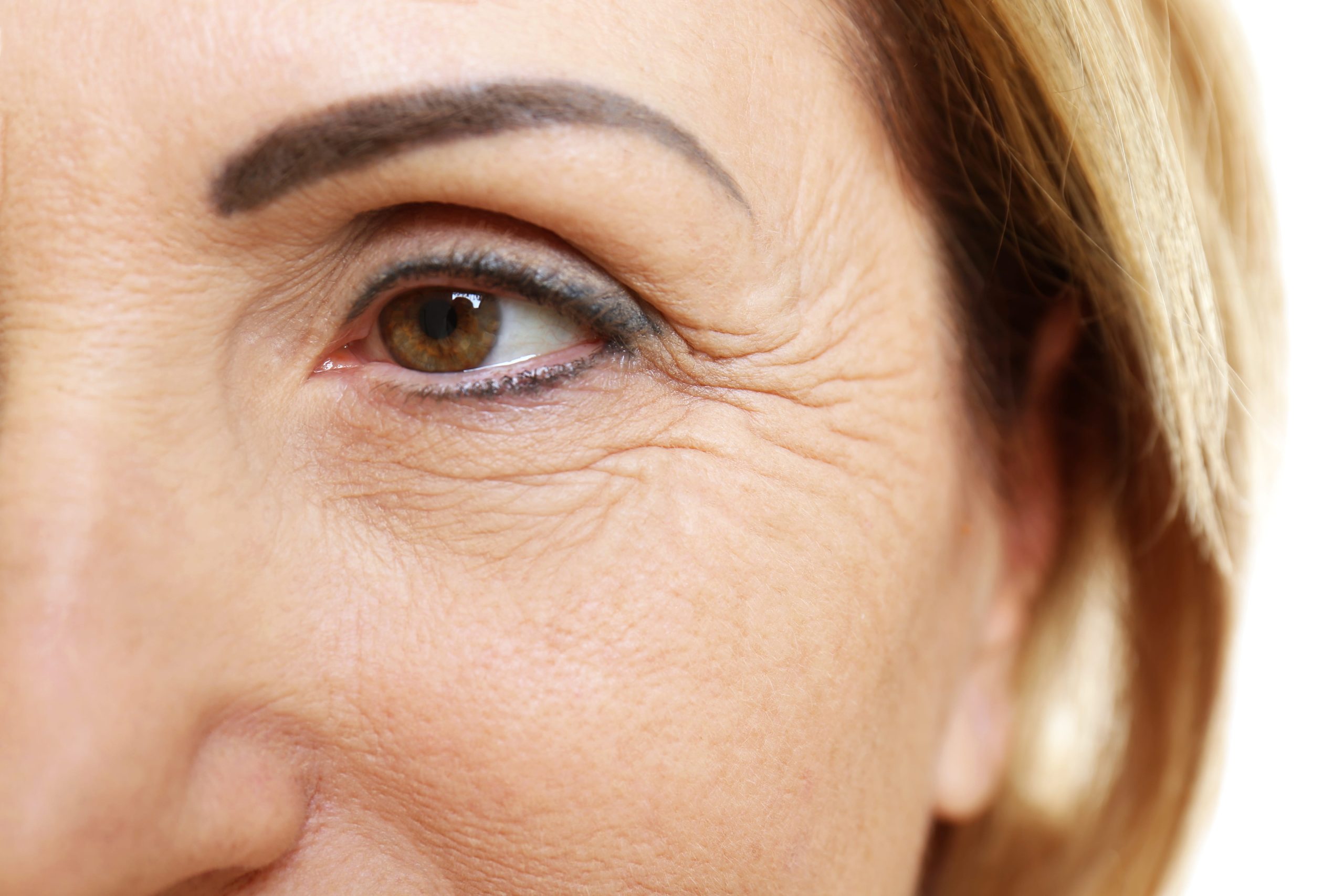
3. Wrinkles
Wrinkles are creases and folds in the skin that occur as we get older. As we age, the layers of our skin naturally thin, causing the loss of elasticity and moisture. This means the skin cannot protect itself and begins to sag, which causes wrinkles to appear. Wrinkles are prevalent around facial expressions, where the skin naturally folds.
What Causes Wrinkles?
Wrinkles are a natural part of ageing, and everyone will be affected by them at some point in their lives. However, the effects will vary in severity depending on the person. Things like sun exposure, smoking, dehydration, medications, and environmental and genetic factors can all play a part in developing wrinkles.
Wrinkles Treatment
Several treatments can help reduce fine lines. Topical retinoid creams, Vitamin A supplements, regular facials (this online facial course can teach you everything you need to know), and anti-wrinkle creams can help fine lines and small wrinkles. However, since wrinkles are more profound, they may require more severe techniques. These can include dermabrasion or microdermabrasion. Botox can also reduce the appearance of wrinkles, but you should thoroughly consider this procedure before going ahead.
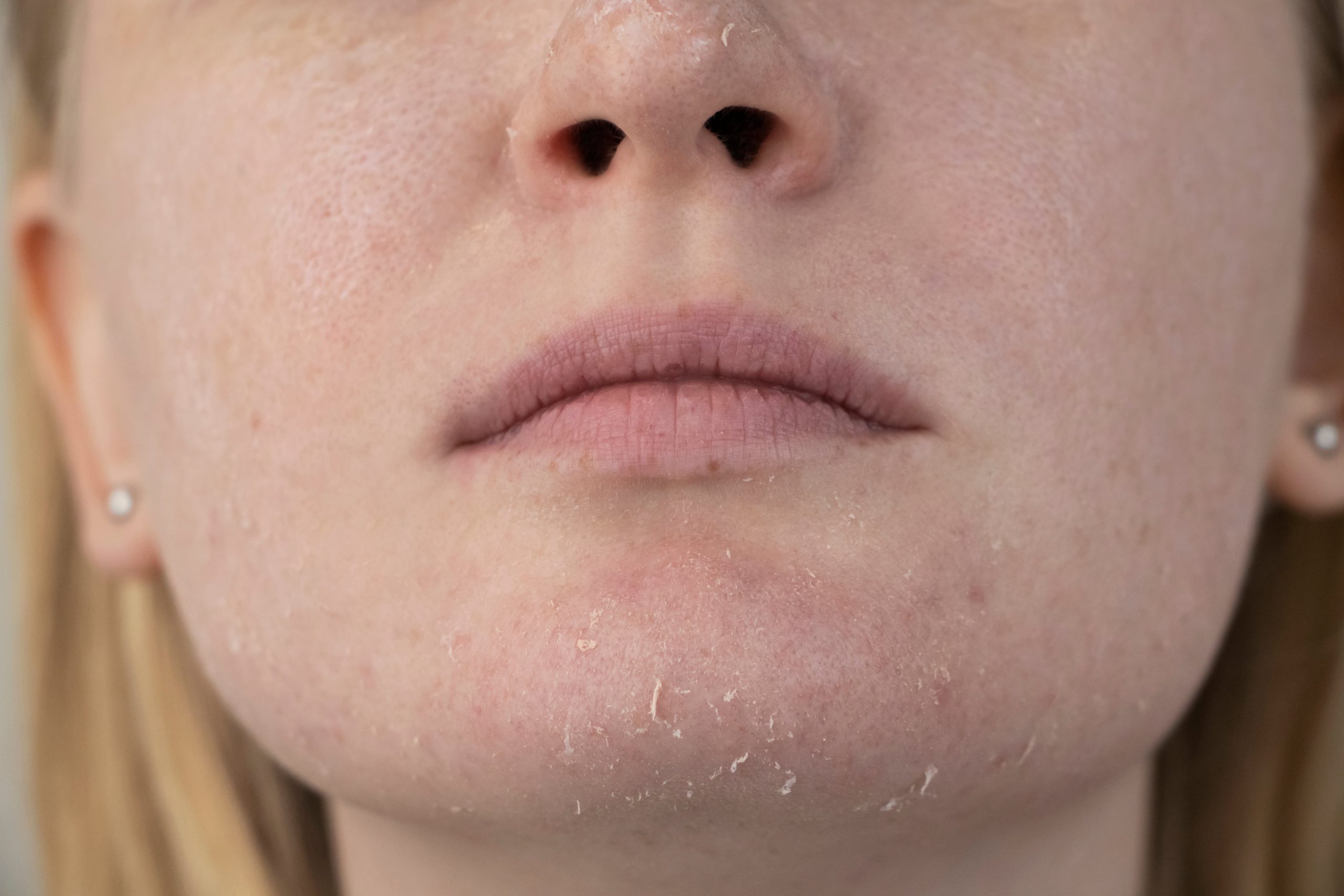
4. Dry Skin
The skin dries out when it doesn’t have enough moisture and begins to lose some of its suppleness. Dry skin can lead to rough-feeling patches that are flaky or look scaly and often itch too. In severe cases, the skin may crack and bleed. Although it is common on the face and other exposed areas, dry skin can affect any part of the body.
What Causes Dry Skin?
Almost everyone suffers from dry skin to some degree in their lives, and it’s usually worse during colder weather. Several things can dry out the skin, though the most common causes are changes in the weather, hot baths or showers, harsh soaps and skin conditions, such as eczema.
Dry Skin Treatment
You should be able to deal with dry skin at home. By building a solid skincare routine with moisturising products, protecting your skin against all weathers and stopping the use of any harsh products, the symptoms should clear up. However, if they persist, or your dry skin interrupts your sleep, or open sores or infections accompany it, you should see a doctor as soon as possible. This could be a severe skin condition and may require specialist treatment.
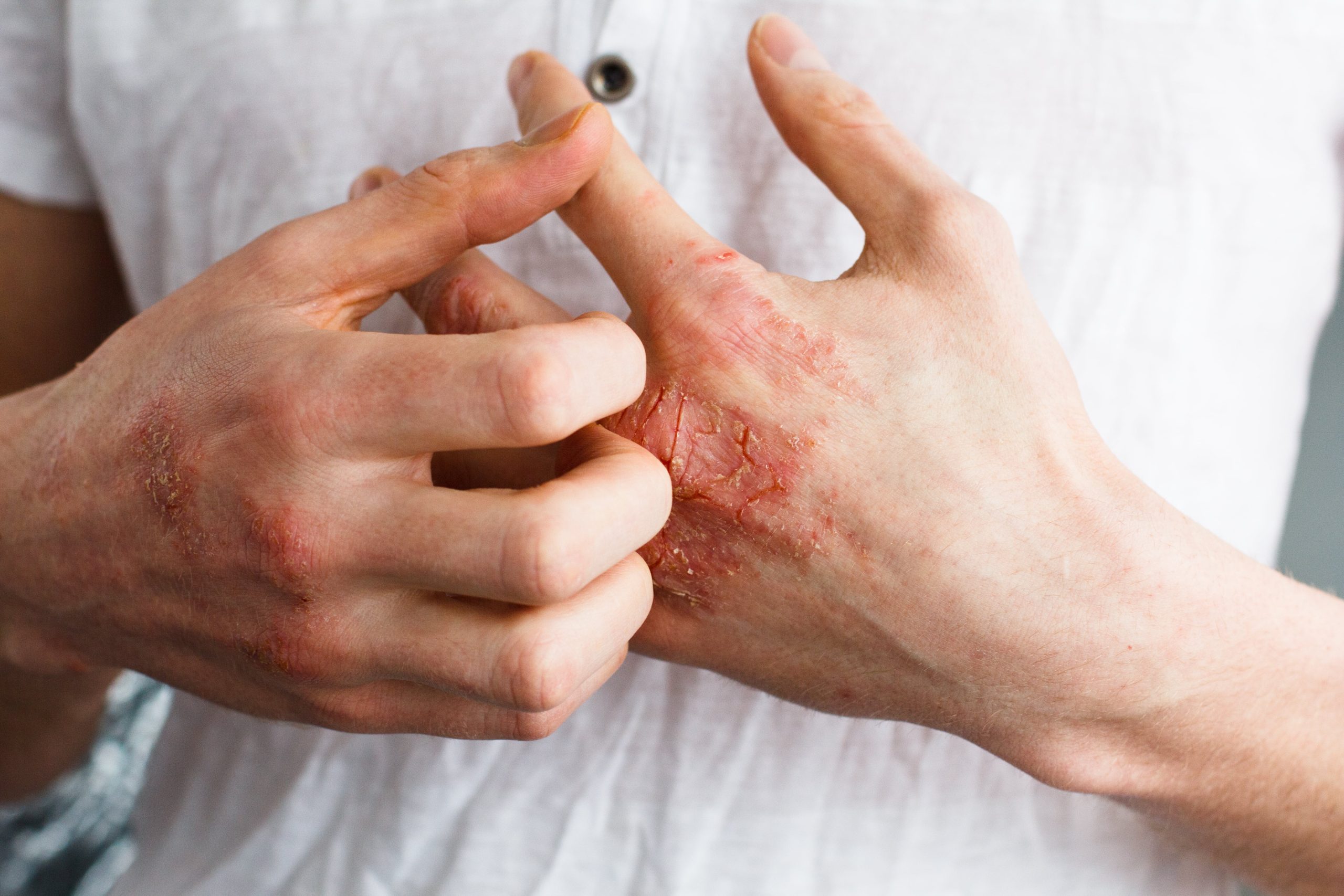
5. Eczema
Eczema is the name for a group of several conditions that cause itchy, inflamed or rash-like symptoms on the skin. There are seven types of eczema: contact dermatitis, nummular eczema, stasis dermatitis, dyshidrotic eczema, atopic dermatitis, stasis dermatitis, and seborrheic dermatitis. It is possible to have more than one type of eczema simultaneously, so it’s essential to consult a doctor before starting treatment.
What Causes Eczema?
Eczema affects 15-20% of children and 1-3% of adults worldwide[iv], but the exact cause remains unknown. However, it’s believed that this skin condition occurs due to a combination of genetics, immune system activation, environmental triggers and stress.
Eczema Treatment
Although there’s no cure for eczema, there are still several treatment options that can make it bearable. These include over the counter medications, prescription topicals, immunosuppressants, biologic drugs and phototherapy. In addition, you should be able to manage flare-ups by avoiding triggers and bathing and moisturising daily.
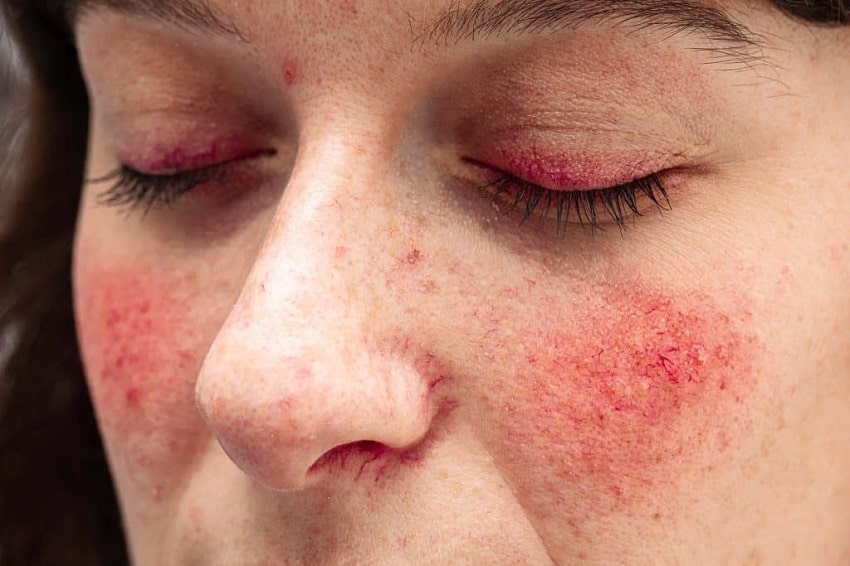
6. Rosacea
Rosacea is a long-term skin condition that usually affects the face. It has similar symptoms to acne and some allergic reactions. However, it can generally be identified by a burning or stinging sensation when using water or skincare products on the face and almost constant redness.
What Causes Rosacea?
Experts aren’t sure exactly what causes rosacea, but it’s believed that certain factors contribute to the development of the condition. These include abnormalities in blood vessels, an uneven number of bacteria, a skin mite called Demodex Folliculorum and genetics. Also, certain things cause flare-ups in different people. Some common rosacea triggers are alcohol, spicy food, cheese, caffeine, hairspray and aerobic exercises, so determine and avoid your triggers to make your rosacea easier to live with.
Rosacea Treatment
Rosacea is incurable, but some treatments can help control symptoms. It’s best to go through a doctor to treat rosacea to ensure proper care. Your doctor may recommend prescription creams, antibiotics or intense pulsed light treatment.
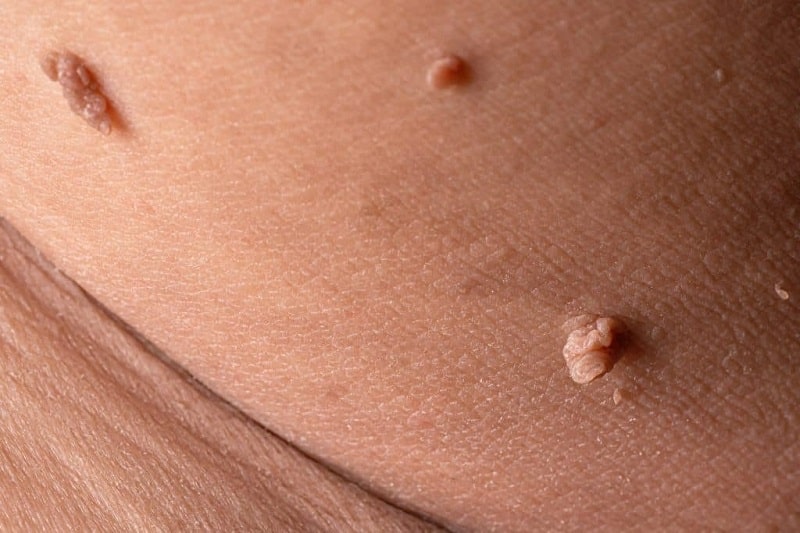
7. Skin Tags
Skin tags are small, harmless growths that hang off the skin, often similar to warts. They can appear all over the body, though they are most commonly found on the face, eyelids, neck, armpits, chest and around the groin. It’s estimated that half of all adults will have at least one skin tag in their lifetime[v], though some are more noticeable than others.
What Causes Skin Tags?
Experts aren’t sure what causes skin tags, though they believe it may happen when clusters of collagen and blood vessels become trapped inside thick pieces of skin. This would explain why skin tags are more common in older people.
Skin Tag Treatment
Since skin tags are harmless, it’s often best to just leave them alone. However, if they have a severe impact on your self-esteem or snag on clothes, you can have them removed. You can have this done professionally or do so yourself. However, you should never remove a skin tag yourself without approval from a professional.
Embrace It!
Although skin conditions can be a serious knock to the confidence, you shouldn’t let them define you! Instead, embrace any skin conditions as part of who you are, which will make the treatment easier going while keeping your self-esteem at an all-time high.
Sources
[i] https://onlinelibrary.wiley.com/doi/pdf/10.1111/bjd.13854
[ii] https://cks.nice.org.uk/topics/acne-vulgaris/background-information/prevalence/
[v] https://my.clevelandclinic.org/health/diseases/21528-skin-tags-acrochordons

Leave A Comment